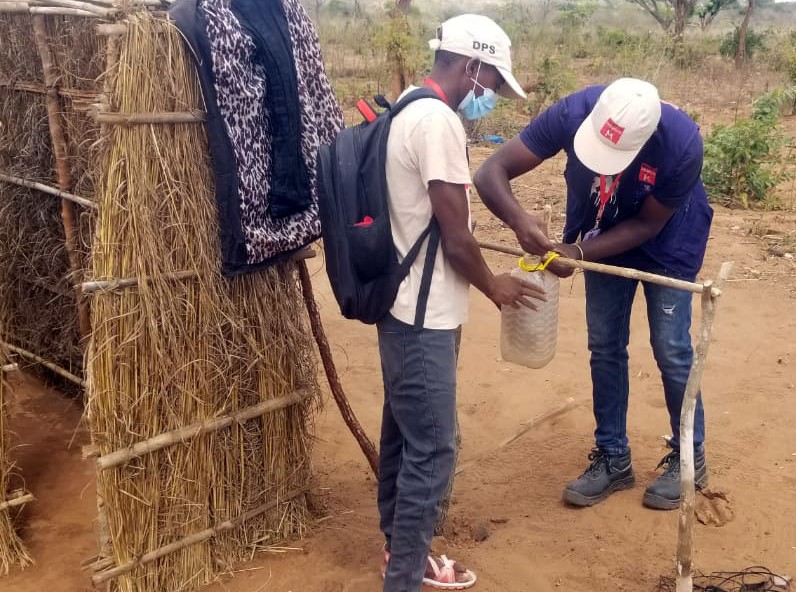MENTOR is supporting the construction and supply of 1,175 tippy taps across six districts of Cabo Delgado Province (Pemba, Ancuabe, Chiure, Metuge, Montepuez and Mueda) in co-ordination with de Provincial Health Directorate (DPS) and local communities.
The new tippy taps will impact more than 297,000 people by providing access to handwashing stations, which reduces the burden of diarrheal disease and risk of cholera outbreaks in these communities.
Tippy taps are a type of handwashing station that are easy to build, low cost and made using local materials. The materials needed for their construction are four wood sticks (or similar material), a jerrycan, a string and gravel for drainage. Soap and clean water are the other two items needed for the station to function. In the absence of soap, ashes can be used as a substitute.
The availability of tippy taps significantly increases handwashing and the use of soap in communities. One study reported that it effectively prevented episodes of stomach pain among participants: (https://bmcpublichealth.biomedcentral.com/articles/10.1186/s12889-020-09101-)
Tippy taps will be placed in structures identified by local authorities and community members, such as Internally Displaced Persons (IDP) settlements, health facilities, schools and markets.
Hygiene promoters trained by MENTOR are also advocating for local families in neighbourhoods hosting Internally Displaced Persons to build their own Tippy Taps with their guidance.
With support from USAID’s Bureau for Humanitarian Assistance (BHA)

